Why Tamil Nadu may soon ban alcohol
- Published
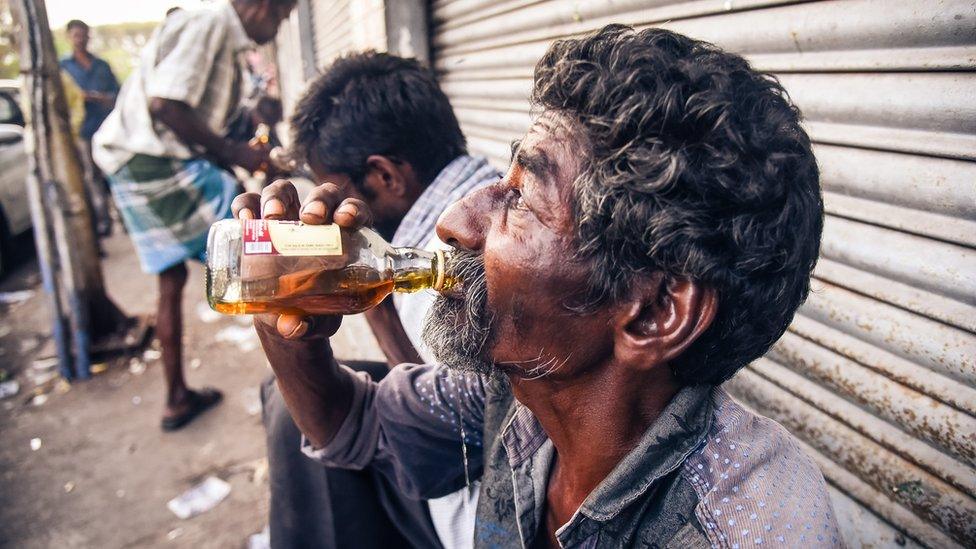
Tamil Nadu government says more than seven million people in the state drink daily
Tamil Nadu may soon become the latest Indian state to impose a complete ban on the sale and consumption of alcohol, writes the BBC's Geeta Pandey in Chennai.
It's early evening and as the hot sun begins to fade on a particularly hot and humid summer day, a constant stream of buyers begins to troop into liquor shops dotting a busy commercial area in the north of the city.
Most customers at these government-run Tamil Nadu State Marketing Corporation (Tasmac) stores are daily-wage workers, rickshaw drivers and low-level government employees.
Most buy small bottles of whiskey, crank them open right there and drink up, throwing empty bottles and plastic cups on the nearby pavements or streets.
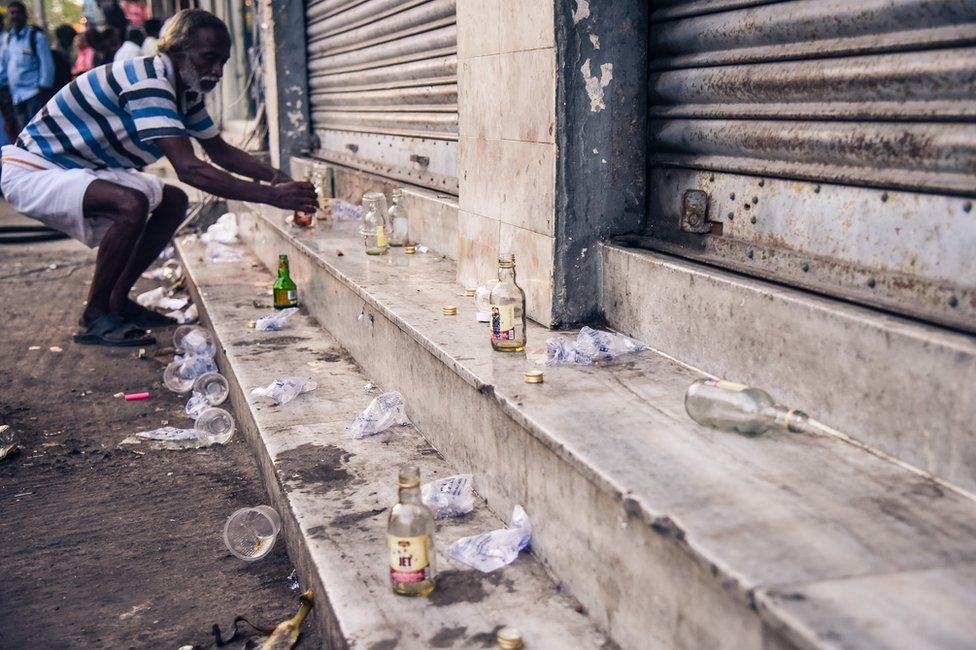
Empty bottles and cups are strewn about near alcohol shops
Outside one shop, we find a man lying on the pavement, too drunk to move a muscle, another sits nearby, in drunken stupor, holding his head between his hands.
The first Tasmac store was set up in 1983 - in just over three decades, their numbers have risen to over 6,800 and locals say every single village in the state has one within walking distance.
But campaigners say this ease of accessibility has fuelled massive alcohol addiction in the state with nearly 10 million addicts.
According to the government's own admission, more than seven million people in the state drink daily.
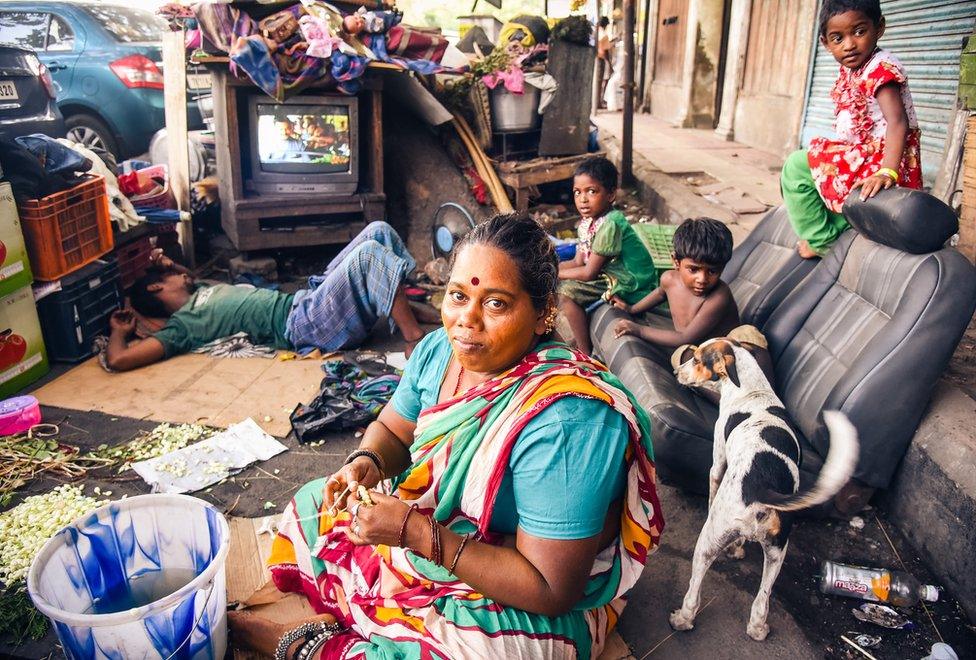
The anti-alcohol campaign has received huge support from women
"The addicts include farmers, labourers, women and children. I have seen even three-year-olds drinking," S Raju, state coordinator of campaign group Makkal Adhikaram (People's Power) told the BBC.
Tasmac stores are everywhere, near schools, near churches and temples and near hospitals, he says.
"Major crimes and accidents are fuelled by alcohol, it is also leading to cases of sexual harassment of women and robberies. Alcohol abuse is also the reason why the state has the largest number of widows under 30 years of age," he says.
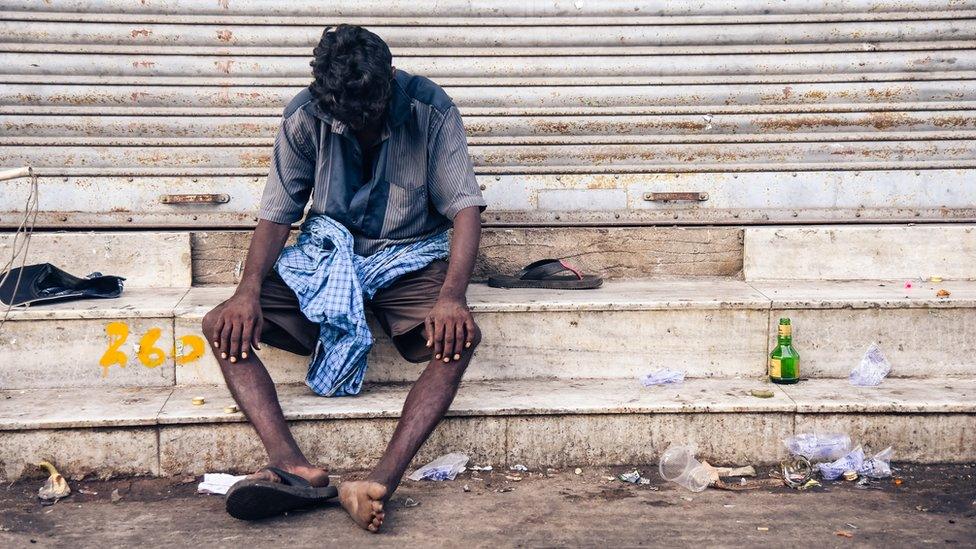
Campaigners say easy accessibility has fuelled massive alcohol addiction in the state
Over the past two years, protests have been held all over the state in support of prohibition and the campaign has received huge support from women.
A group of women flower sellers in Rattan Bazar area say they support prohibition because their husbands spend all their daily earnings on alcohol.
Among them is V Bharathi, a 40-year-old mother of two girls.
"My husband earns 200 rupees ($2.9; £2) a day, but he brings home only 100 rupees. He drinks all the time and if I object, he beats me up," she says.
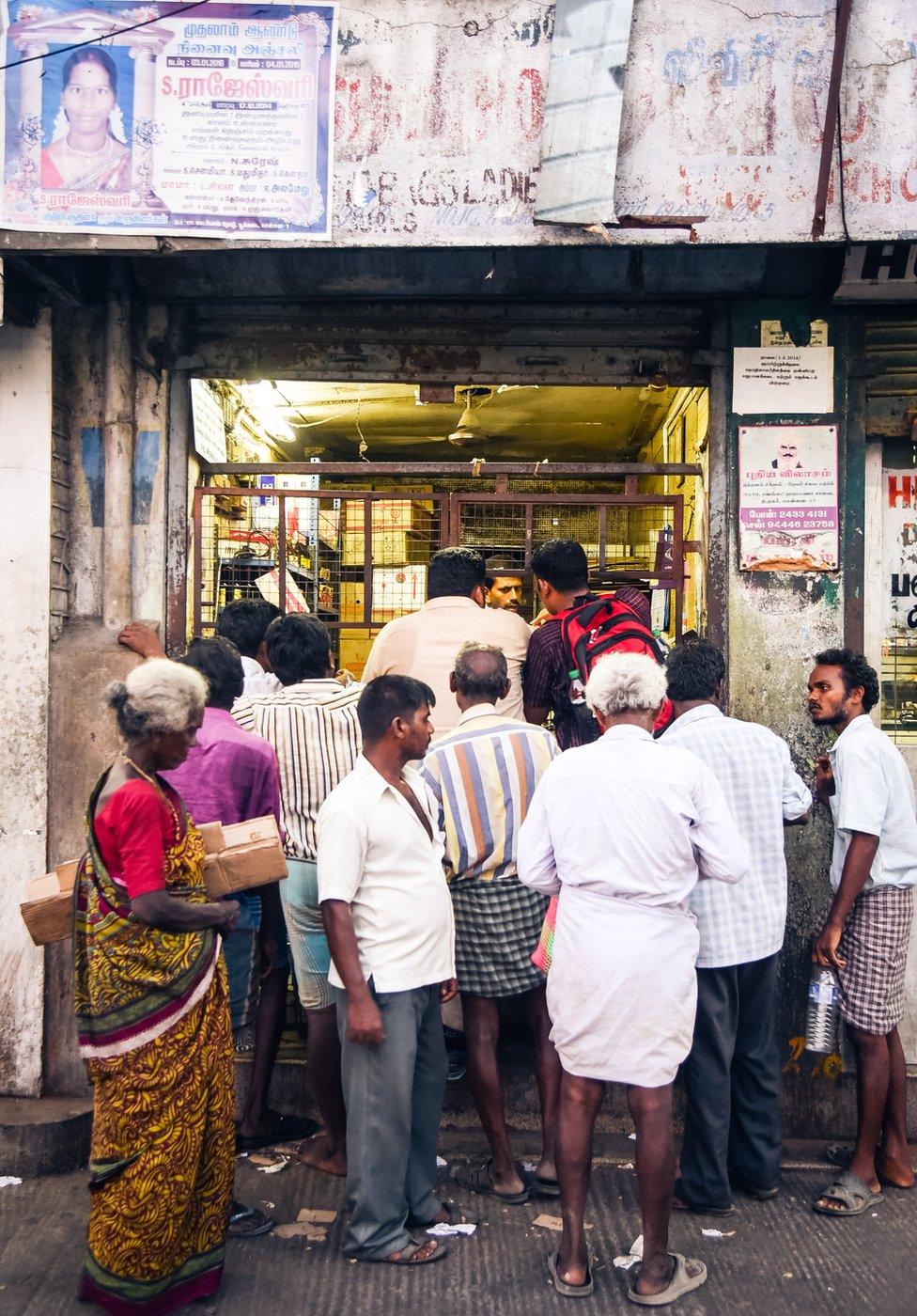
There are more than 6,800 government-run alcohol stores in Tamil Nadu
In the past few weeks, the state's main regional parties DMK and the AIADMK vowed to introduce prohibition if voted to power in the ongoing assembly elections.
In their election manifesto, the DMK said it would halt sales in one fell swoop, the AIADMK announced it would introduce the ban in "a phased manner, external".
Voting was held on Monday and counting is due on Thursday, but all exit polls are already predicting a victory for the DMK and it's being suggested that the alcohol ban may have had something to do with the DMK's fortunes.
However, this is not the first time the state is considering prohibition - it was first introduced in Salem district in 1937 and later expanded to cover the entire state.
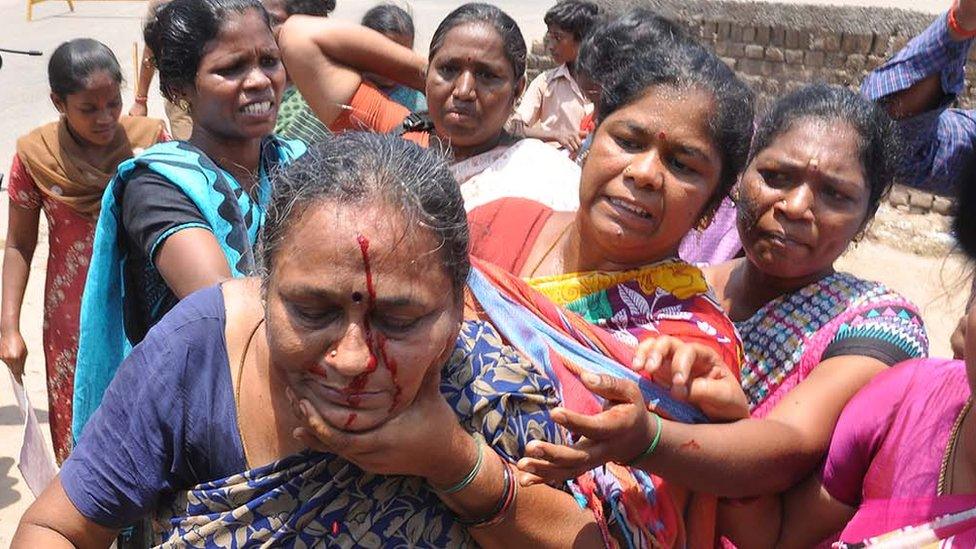
In recent weeks, there have been violent protests in support of prohibition
But years later, the ban was lifted. Since then, there have been several instances when the state has banned alcohol, only to lift it again.
That, analysts say, is because alcohol sales fetch the state exchequer billions of rupees annually in sales tax and excise duty - this year, the earnings are pegged at 300bn rupees ($4.5bn; £3bn) - and no government is happy to forego this considerable sum of money.
Campaigner, however, point out that prohibition has been successful in several other states.
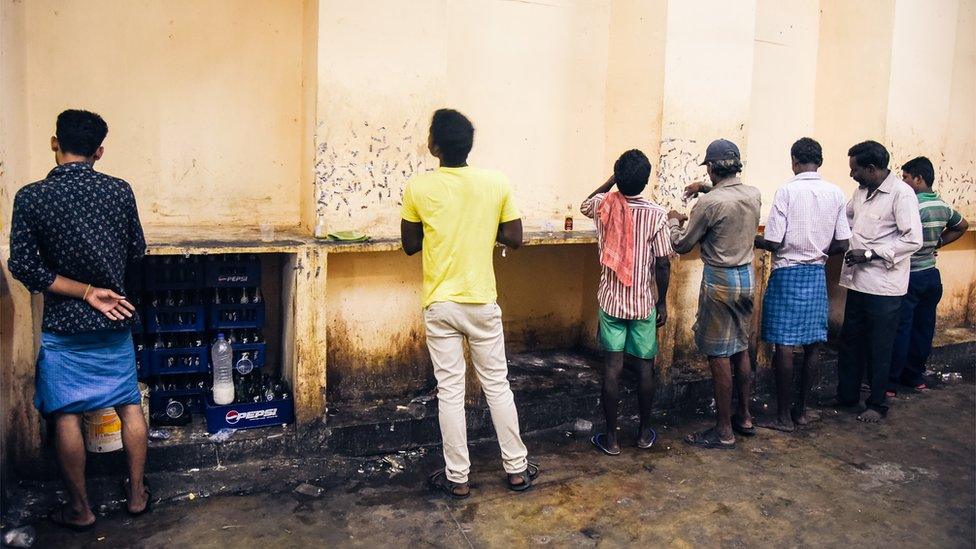
Men drink at a bar attached to a Tasmac store
Alcohol is completely banned in the western Indian state of Gujarat while the southern state of Kerala and some other Indian states have imposed a partial ban.
In April, the eastern state of Bihar, external announced a complete ban on the sale and consumption of alcohol.
Reports coming out of the state, however, suggest that the ban has just pushed the alcohol trade underground, and that illegal sales are rampant.
There are also reports that many have been travelling to alcohol shops in border districts in the neighbouring states of Uttar Pradesh and Jharkhand to buy alcohol.
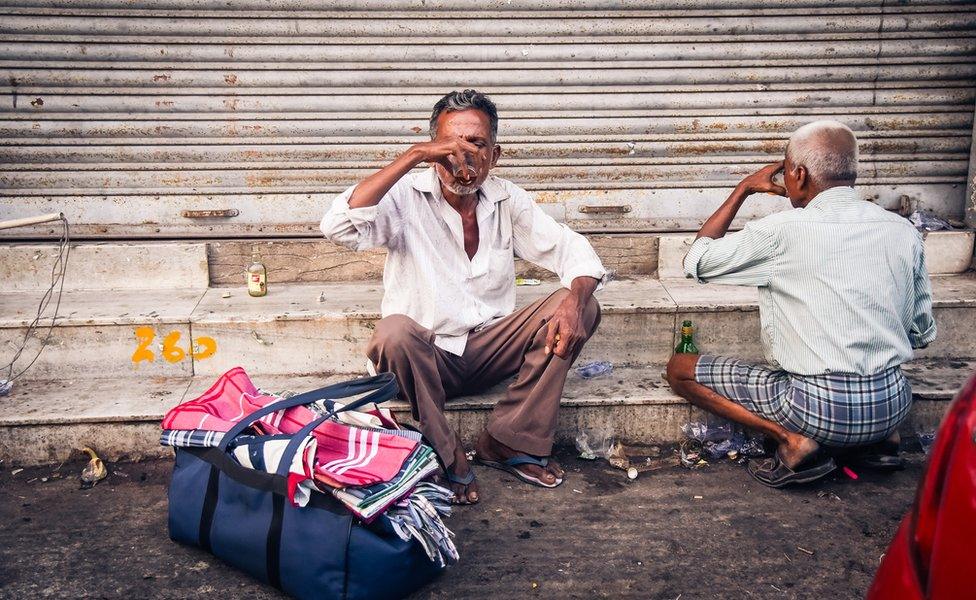
Campaigners say that shutting down Tasmac shops will go a long way in curbing alcoholism in the state
Some of the Tasmac customers I spoke to in Chennai told me that once the ban was imposed, they would just have to travel to the neighbouring Andhra Pradesh state to get their fix.
Mr Raju, however, believes that shutting down Tasmac shops will go a long way in curbing alcoholism in the state.
"It is the government's moral responsibility to bring in prohibition. Making it harder for people to buy alcohol will definitely help.
"Can students and women go to Andhra Pradesh every day?"